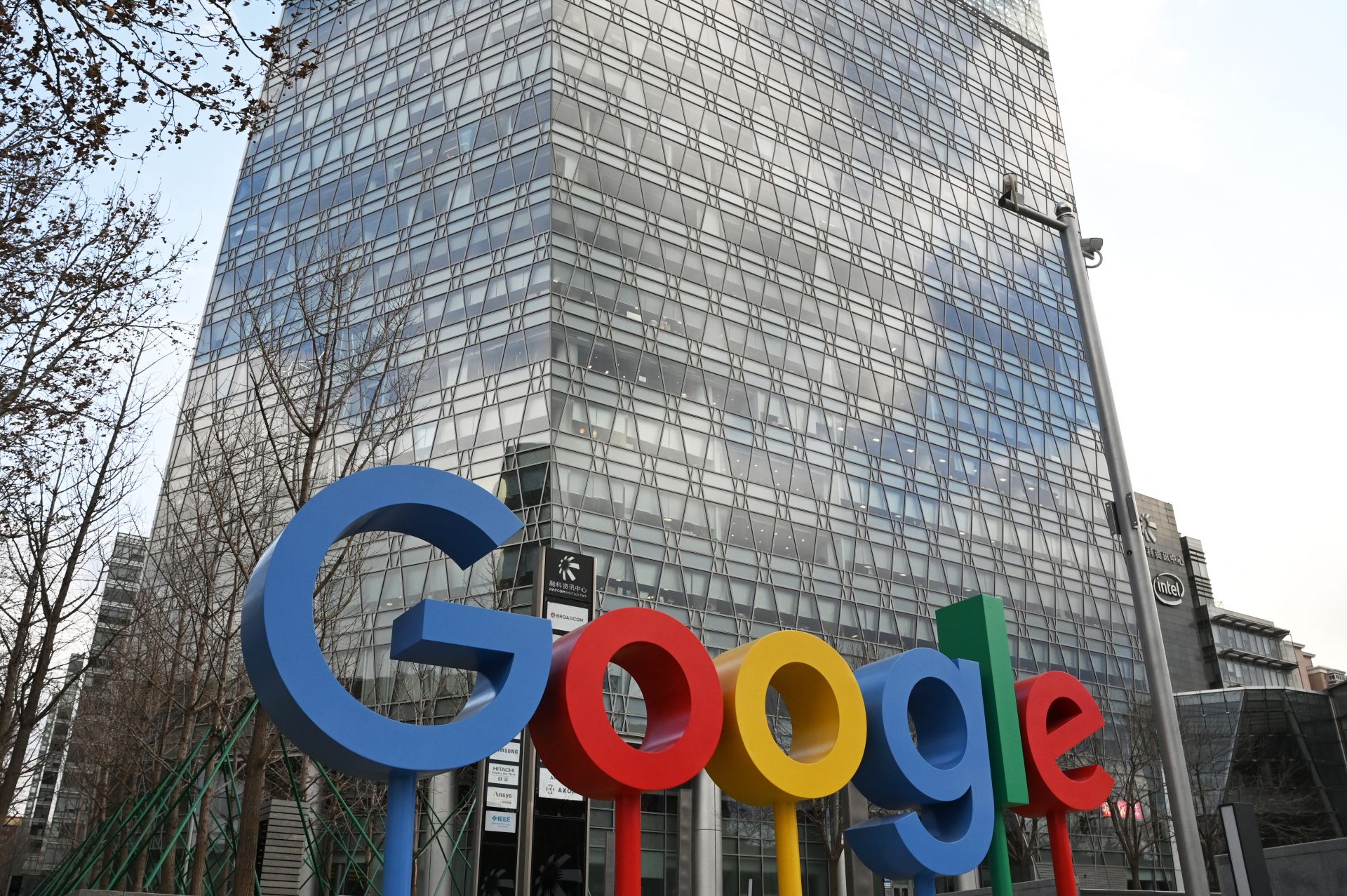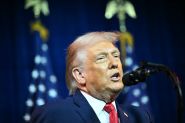- Home
- Middle East
- Antitrust Cases Against US Tech Giants

Five major antitrust cases target American tech giants, with serious accusations against Google, Meta, Amazon, and Apple. A historic legal battle is underway to restore competition. ©Greg Baker / AFP
Launched under both the Trump and Biden administrations, five major antitrust cases from the Federal Trade Commission and the US Department of Justice are proceeding against major American technology companies.
These cases represent a significant shift in antitrust enforcement in the United States, with regulators taking a more aggressive approach toward big tech companies after a relatively quiet period in antitrust prosecution since the Microsoft case in the late 1990s.
Google Search
The DOJ's case against Google regarding its dominance of internet search was filed in 2020.
In August 2024, Judge Amit Mehta ruled that Google maintained an illegal monopoly in online search, marking a landmark decision.
The US government asked that the Chrome browser be spun off from Google, and for an end to the tens of billions of dollars Google pays to Apple annually to secure its default position on the iPhone's Safari browser.
But on Tuesday the judge ruled against these draconian demands, instead imposing data sharing agreements on Google as a way to rein in the company's dominance.
As with all these cases, an appeal potentially reaching the US Supreme Court is almost certain, extending legal proceedings for years.
Google Ad Tech
The Department of Justice's antitrust case against Google's ad tech business, filed in a Virginia federal court in January 2023, alleged that Google built a monopoly in the digital advertising market through strategic acquisitions and anticompetitive behavior.
The lawsuit specifically targeted Google's dominance across three sectors of online advertising -- publisher ad servers, advertiser tools, and ad exchanges -- and seeks to force Google to divest portions of its advertising technology business to restore competition.
Judge Leonie Brinkema earlier this year decided against Google, calling its hold on display advertising an illegal monopoly, and hearings begin this month on the potential remedies.
Meta
The Federal Trade Commission's case against Meta, Facebook's parent company, was filed in 2020, with the FTC alleging that Meta illegally maintained a monopoly in "personal social networking" services by acquiring potential rivals Instagram and WhatsApp.
The six-week trial took place in April and May in a federal court in Washington, with CEO Mark Zuckerberg and top Meta executives taking the stand, and a decision is expected before the end of the year.
The FTC is seeking potential divestiture of the acquired platforms, while Meta argues their acquisitions benefited customers.
Zuckerberg has lobbied the White House in an effort to persuade President Donald Trump to intervene in his favor in the case.
Amazon
Filed in September 2023, the Federal Trade Commission argues that Amazon illegally maintains a monopoly in online retail.
Key allegations include Amazon punishing sellers who offer lower prices elsewhere by burying their products in search results, and requiring sellers to use Amazon's expensive fulfillment services to secure access to its Prime customer base.
The FTC also accuses Amazon of degrading customer experience by prioritizing paid advertisements over relevant search results, favoring its own products over higher-quality alternatives.
The trial for the case is currently scheduled to begin in a federal court in Seattle in February 2027, with Judge John Chun presiding.
Apple
The Department of Justice's lawsuit against Apple, filed in March 2024, was the last of the major cases to be launched against the big tech companies.
It alleges that the company illegally maintains a monopoly over premium smartphones by making it difficult for consumers to switch from iPhones to other devices and by limiting how well competing products like non-Apple smartwatches and digital wallets work with iPhones.
The lawsuit was filed in a New Jersey federal court and will be tried before Judge Julien Neals.
By Alex PIGMAN/AFP
Read more



Comments